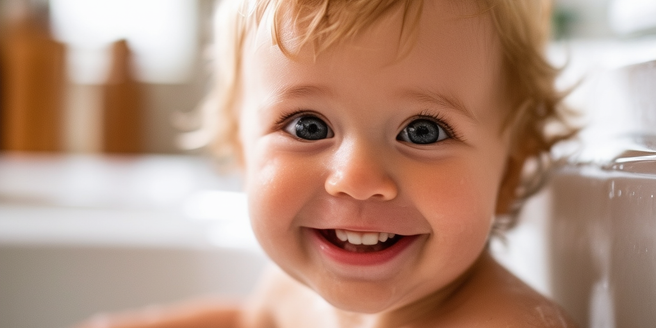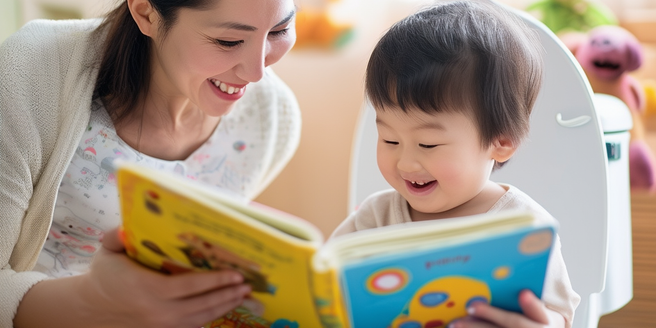
Understanding When to Start Potty Training
| Physical Signs | Emotional Readiness | Parental Preparedness |
| Dry periods | Interest in potty | Time Commitment |
| Regular bowel movements | Following instructions | Consistency |
| Motor Skills | Desire for independence | Patience |
| Discomfort with diapers | Communication ability | Support |
| Control bladder muscles | Cooperation | Encouragement |
Essential Potty Training Supplies You’ll Need
When embarking on the potty training journey, having the right supplies can make the process significantly smoother. Essential items include a child-sized potty chair or a potty seat that fits securely on your regular toilet. Not all children will respond to the same tools, so be prepared to try different options. Training pants or pull-ups that your child can easily pull up and down are also crucial. Additionally, keep a generous supply of wipes and a step stool handy for reaching the sink. Reading books and fun toilet paper with characters can motivate your child to use the potty. Lastly, consider a timer to remind your child to try using the toilet at regular intervals.
Creating a Positive Potty Training Environment
A positive potty training environment can greatly influence your child’s willingness to learn. Start by choosing a comfortable and accessible potty location. Make the bathroom a place where your child feels safe and relaxed. You might consider reading a potty-themed storybook to make the experience more enjoyable. If possible, demonstrate the potty process with a doll or toy to show how it works. Use encouraging words and celebrate small victories with praise. You can also involve your child in the process by letting them choose their potty chair and decorate it with stickers. Establish a routine and be patient, as consistency and reassurance are key factors in creating a positive learning experience.
Step-by-Step Guide to Potty Training
The potty training process can be broken down into manageable steps for better results. First, introduce the concept by explaining what the potty is for and allowing your child to observe family members using the toilet. It’s helpful to read books or watch videos about potty training together. Additionally, make the experience fun with songs or games. Patience and positivity are key to making the process smoother for everyone involved. Next, encourage your child to sit on the potty with their clothes on, progressing to sitting with a bare bottom. Establish a routine by scheduling regular potty breaks and praising successes. Be patient with accidents and avoid punishment. Consistency is crucial, so maintain the routine even when away from home.
Overcoming Common Potty Training Challenges
Potty training often comes with its share of challenges, but they can be overcome with patience and strategies. If your child resists using the potty, try to find out why and address their concerns calmly. Offer incentives and celebrate small achievements to build confidence. Address any fears they may have about flushing or sitting on the potty. Consistency is key, so stick to the routine even during setbacks. Providing a comfortable and positive environment can make the process smoother. It can also be helpful to read books or watch videos on potty training to make the concept more relatable. If accidents occur, reassure your child and encourage them to try again without scolding or punishment.
Nighttime Potty Training: Tips and Tricks
Nighttime potty training can be more challenging than daytime training, but with the right approach, it is achievable. Limit liquids before bedtime and ensure your child uses the potty right before sleeping. It’s helpful to establish a consistent bedtime routine as well. Remember that each child is different and may progress at their own pace. Being prepared with the necessary supplies will make the process smoother. Invest in waterproof mattress protectors to ease clean-ups in case of accidents. Encourage your child to wake up and use the toilet if they feel the urge during the night. Be patient, as nighttime training may take longer. Praise dry nights and offer support without criticism during setbacks.
Dealing with Potty Training Regressions
Regressions in potty training are common and can be triggered by various factors such as stress, illness, or major changes. It’s important to recognize that these setbacks are a normal part of the development process. When your child experiences a regression, respond with patience and understanding. Reinforce the basics by revisiting the potty training routine and offering additional encouragement. Remind your child of the steps and celebrate their small achievements to motivate them.
Avoid punitive measures, as they can heighten anxiety and prolong the regression. Harsh responses can make the child feel ashamed and may lead to further resistance. Stay positive and provide consistent support to help your child regain their potty training milestones. Offering praise and rewards for successful attempts can be an effective way to boost their confidence.
Remember to create a stress-free environment, as external pressures can impact your child’s progress. Engage in open communication to understand any fears or concerns they might have about using the potty. Being attentive to their needs and showing empathy can make a significant difference. With time, patience, and consistent efforts, your child will overcome the regression and continue to make progress in their potty training journey.
Traveling While Potty Training: What to Know
Traveling can disrupt your potty training routine, but preparation can mitigate challenges. Pack all essential potty training supplies, including a portable potty seat, wipes, and training pants. It’s helpful to familiarize your child with the travel essentials beforehand. Schedule regular bathroom breaks during the trip and look for child-friendly restrooms. Explain to your child that they will need to use different bathrooms during the journey. Remind them that trying new bathrooms can be an adventure. This can help make the experience more exciting and less intimidating for them. Maintain patience and set realistic expectations, as your child may experience setbacks. Encourage your child to use the potty even when away from home, and continue praising their efforts and successes.
Potty Training Different Age Groups
Potty training approaches can vary depending on the child’s age. For toddlers, focus on early familiarization with the potty and making the process playful. Patience and encouragement are key components during this stage. Preschoolers benefit from more structured routines and clear instructions. Introducing rewards can be effective for maintaining their motivation, keeping them engaged throughout the process. Remember to celebrate small successes to boost their confidence. Older children may require additional encouragement if they were not trained earlier. In some cases, consulting a pediatrician for advice tailored to your child’s needs may be beneficial. Adjust your strategies based on your child’s developmental stage and individual needs. Consistency, patience, and understanding are crucial across all age groups to achieve potty training success.
Celebrating Success and Reward Strategies
Celebrating potty training successes can be a fantastic way to motivate your child and reinforce positive behaviors. Developing a reward system tailored specifically to your child’s interests can make the process even more effective. For instance, you could use sticker charts or small treats as incentives. It’s important to offer praise for every successful attempt toward using the potty independently. These celebrations should be fun and meaningful, but it’s crucial not to overemphasize the rewards to avoid creating a dependency.
Beyond material rewards, verbal praise and hugs are powerful motivators that can make your child feel proud and encouraged.
Consistent encouragement and positive reinforcement play a significant role in creating a supportive atmosphere. This environment fosters confidence and a sense of achievement, which are crucial for reaching potty training milestones. Over time, this positive reinforcement helps build their self-esteem and motivates them to continue trying.
Moreover, you can incorporate fun and engaging activities, such as reading books about using the potty or singing special potty songs. These enjoyable moments make the learning process less intimidating and more exciting for your child. By nurturing their sense of accomplishment and independence, you’ll help them navigate this important developmental milestone with confidence.

